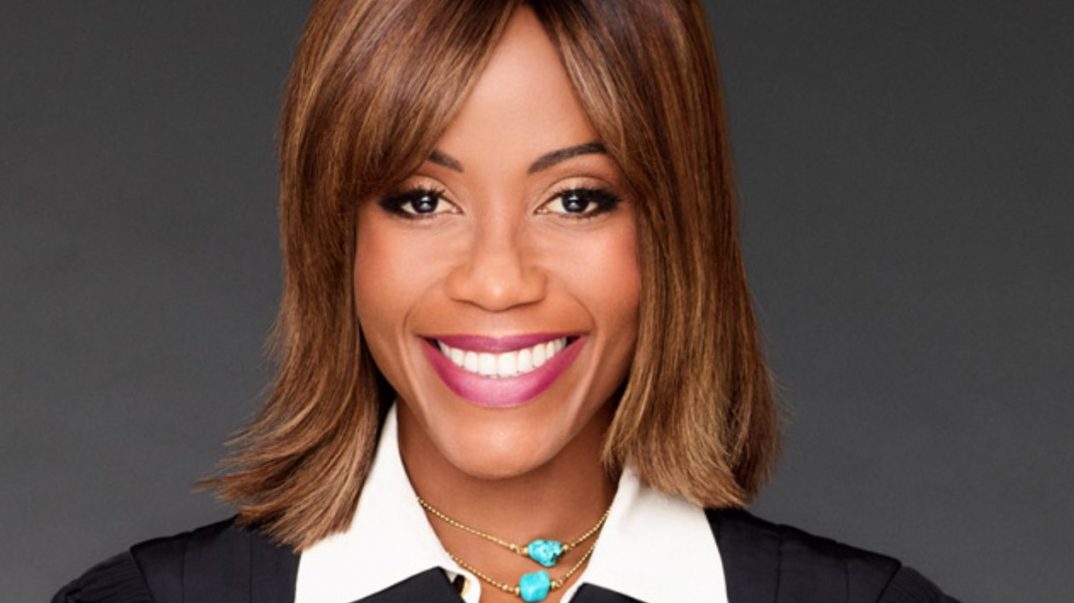EXCLUSIVE: ‘Hot Bench’ star Tanya Acker on racial disparity in justice system
The real-life lawyer weighs in on the racial disparity within our justice system.

You may have seen Tanya Acker on her hit CBS show, Hot Bench, and if you haven’t, you should definitely check it out. The Emmy-nominated series was created by Judge Judy and airs five days a week, adding a new twist to traditional court shows, with the first-ever three judge panel that includes Acker along with Patricia DiMango and Michael Corriero.
“It was very much an intention to create something that stands out from the rest. She [Judge Judy] came up with the idea for the show by watching a trial in Europe where they have a three-judge court in action and she wanted to make it a show. The rest is history,” she says.
According to Acker, everything viewers see on the show is real and the outcomes are binding.
“I can only speak about our show and to Judge Judy’s show. Our cases are absolutely real. Every case that we try on our show has been filed in a court somewhere in the country. Our litigants are the real people who filed the case and it’s pending in a court somewhere,” she explains. “In order to come on the show, they dismiss the cases wherever they are and agree to arbitration agreements. Our show is binding arbitration. You don’t see the whole case because it would not be interesting to people. I think viewers should be grateful to our editors because parts of the cases are boring. We try the whole case and edit it so the viewers only see the interesting parts.”
Acker received her B.A. degree at Howard University before attending Yale Law where she represented low-income women in family law cases and served as a teaching assistant in Constitutional Law and Civil Procedure courses. She has worked at the Office of White House Counsel, the Civil Rights Division in the United States Department of Justice and various private law firms. Her work in private law includes working with President Clinton’s personal lawyers, as well as on the preparation of Congressional testimony for pending product liability legislation and First Amendment issues.
After graduating from Yale, Acker served as a judicial law clerk to the Honorable Dorothy Wright Nelson on the Ninth U.S. Circuit Court of Appeals. In private practice, Acker’s legal work spanned a broad variety of matters from civil litigation involving public and private entities, to various constitutional cases, to providing business counseling and advice. She also maintained a commitment to pro bono work, receiving the ACLU’s First Amendment Award for her successful representation of the homeless in a case against the City of Santa Barbara.
“I think that prison reform and justice reform are issues we have to think about broadly as well as the issue of disparate treatment in the justice system. It’s nothing new, it’s a long-standing issue and the reality. If you look at statistics about things like drug crimes or marijuana arrests, there is an incredible racial disparity in terms of how people are treated and prosecuted by law enforcement. That point is beyond debate. How we address it is a deeper and more sensitive question,” she says.
“There are institutional issues that if we are going to be honest and have a justice system that everybody trusts in and believes in, then we have to address these inequities and we have to do it as smart, intelligent people who know history and have a sense of reality.”
Social justice activists rally over police shooting of Antwon Rose and immigration
As a black woman, the community’s outrage over the justice system’s inequities hit her especially hard.
“It’s certainly something I am sensitive to. That sensitivity doesn’t mean people of color are going to get a break. I think that anybody who is true to law isn’t going to do that but what you are going to do is be mindful of the fact that certain people are thought to be suspicious and the suspicions that people have are coming from a place that I might question,” she says.
“I’m only a judge on the show. In life, I’m a lawyer. I’m not an appointed judge or an elected judge but I am an officer of the court. As someone who is a human walking this planet, I will sometimes question whether or not someone’s suspicions are race-based and I think that’s a fair question to ask. We’re going to have to have a conversation about all of those things including a justice system that is sometimes not fair.”
According to Acker, being a Black woman informs her own perspective on certain cases and she strives to treat all of her clients or litigants the same way, but that’s not necessarily the case with all lawyers or judges.
“I think that anybody who interacts or engages with the legal system has a responsibility to try to process it fairly. If you’re managing a client, manage them with dignity. Everyone has a right to have their full story heard absent of whatever perception I or anyone else wants to impose on it. As a black woman I am sensitive to all the times I know that hasn’t happened to me but as someone whose job it is to arbitrate other people’s cases, I’m going to give the same treatment to everyone,” she says.
“There’s a real disproportion. Are we saying that young people of color don’t do bad things? Of course not. What we’re saying is that young folks of color should be treated with the same respect that the system seems to be able to impart on other kinds of people. It’s not about letting people off the hook. In an environment where we are talking about freedom and giving people space to make mistakes, we need to grapple with it honestly instead of pretending that it doesn’t exist.”
